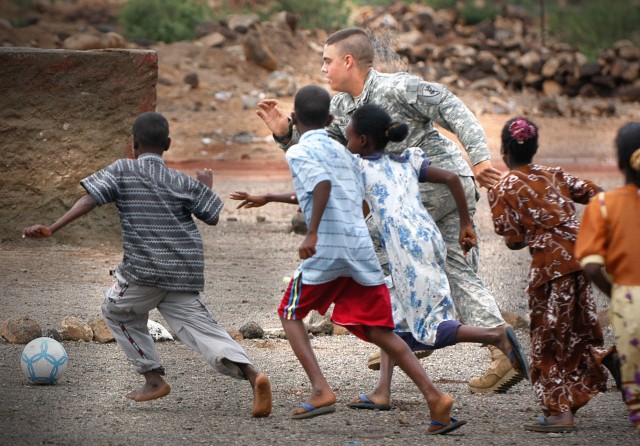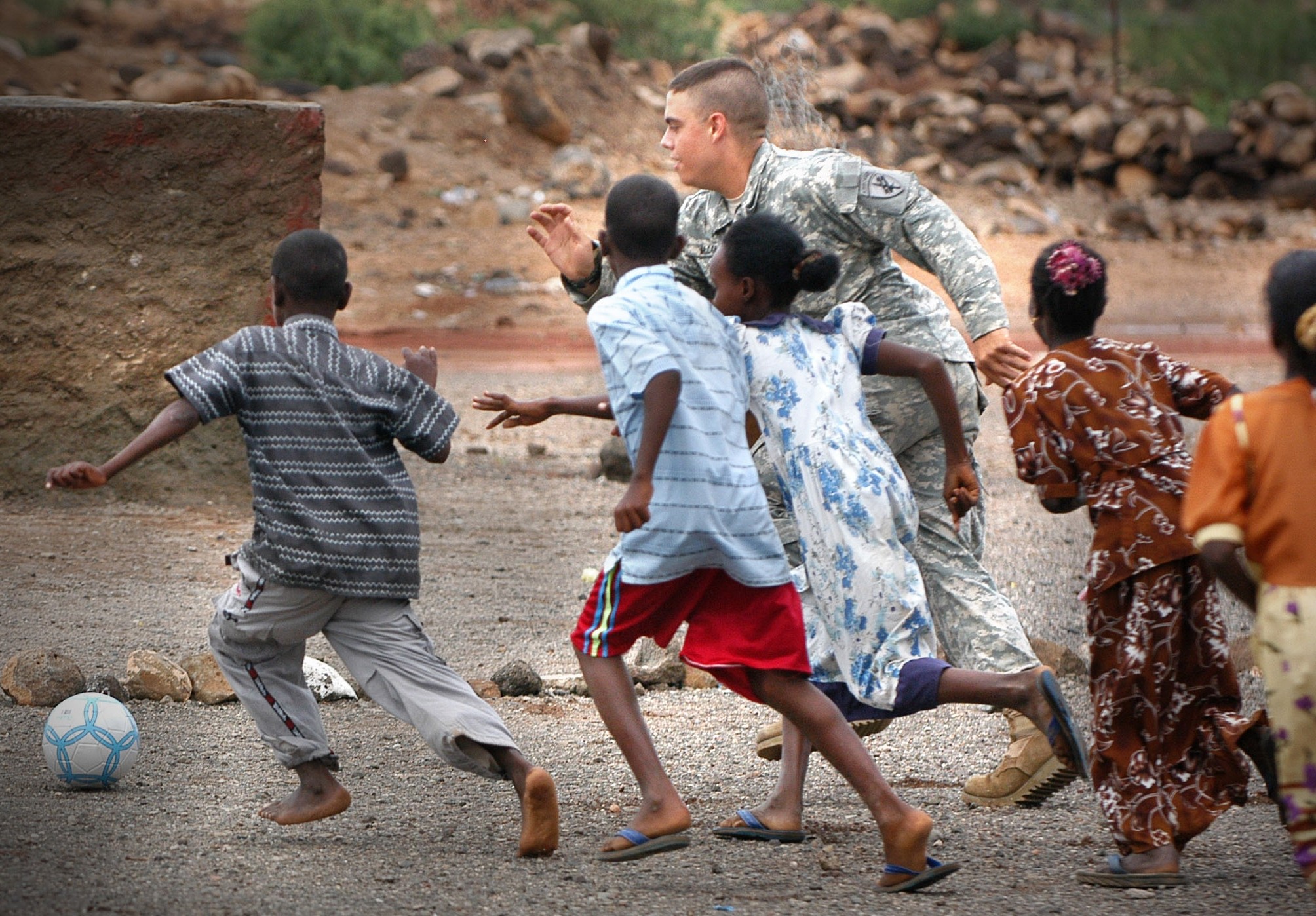WASHINGTON (American Forces Press Service, Feb. 7, 2007) - The main goal of the new U.S. command in Africa (AFRICOM) will be to develop a stable environment on the continent to promote civil society and improved quality of life for the people there, a top Defense Department official said here today.
Africa, which represents 35 percent of the world's land mass and 25 percent of the population, is growing in significance, and it is time for the United States to recognize its importance and consolidate efforts there, Ryan Henry, principal undersecretary of defense for policy, said in a Pentagon news conference.
"This command will focus on some efforts to reduce conflict, to improve the security environment, to defeat or preclude the development of terrorists or terrorist networks, and support in crisis response," Henry said.
President Bush and Defense Secretary Robert M. Gates announced the establishment of a new unified command in Africa yesterday.
AFRICOM will integrate DoD efforts in Africa, which now are split among three combatant commands, and enable more cooperation with other U.S. government agencies, such as the State Department, Henry said.
"It is a continent and a group of nations who think of themselves from a continental perspective; they think of themselves as Africa," he said. "One of the major reasons that it's time to stand up Africa Command is for us to view the people, the nations and the continent of Africa from the same perspective that they view themselves."
Many of the missions AFRICOM will perform will be non-kinetic, such as humanitarian assistance and disaster relief, Army Lt. Gen. Walter Sharp, director of the joint staff, said at the news conference. AFRICOM will have a strong emphasis on building the capacity of African nations through training and equipping African militaries, conducting training and medical missions on the continent, and supporting regional organizations like the African Union, he said.
AFRICOM will also be responsible for any necessary military action in Africa, Sharp said. He emphasized that although non-kinetic missions will be important, military responsibilities are not the last priority for AFRICOM, because it will be a combatant command.
"This command also has the responsibility and will have the responsibility to do whatever military operations that the secretary (of defense) and the president direct," Sharp said. "So it is a combatant command plus, the plus meaning what we're able to hopefully be able to garner together for the interagency coordination from the very beginning."
Henry pointed out that AFRICOM will be unique in the amount of interagency cooperation it will involve. The command's headquarters will include representatives from the State Department and other government agencies, and DoD will work closely with the African nations in developing the structure of the command and possible missions, he said.
"The United States, as a full government, recognizes the emergence of the African continent and the nations (that) compose it ... as key players on the global scene, something that will continue to rise in significance through this century," Henry said. "The Department of Defense, as part of the rest of the U.S. government, is organizing themselves for the emergence of this new center."
The AFRICOM transition team now consists of about 60 people and is based in Stuttgart, Germany, Sharp said. This team will work on many details of the command that are still undecided, such as the size of the headquarters, the eventual location of the command in Africa, and how troops will rotate into the continent. AFRICOM will have initial operating capability sometime this year, with a goal of full capability by the end of fiscal year 2008, he said.


Social Sharing